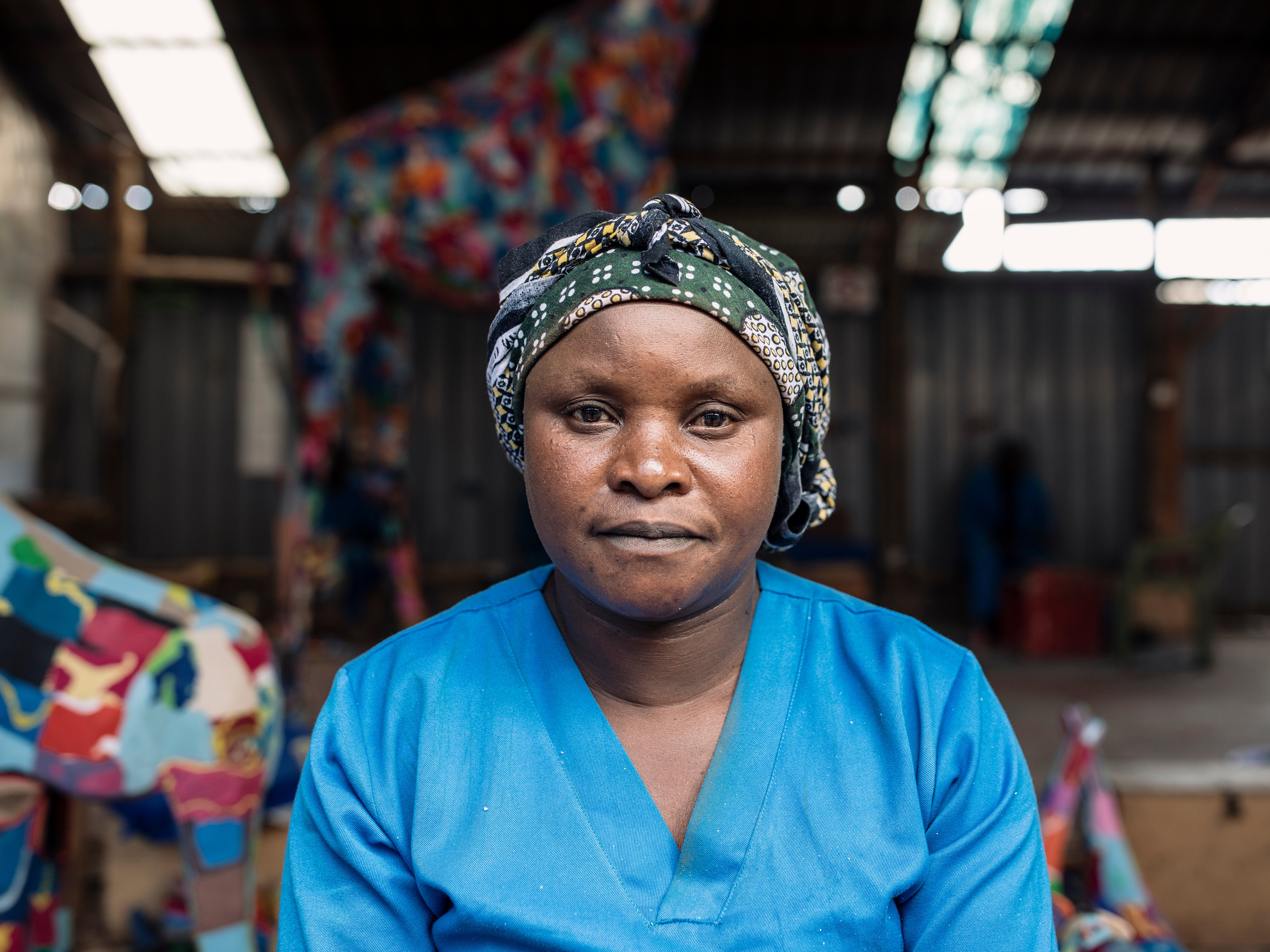The social enterprise turning discarded flip-flops into masterpieces
Humanitarian correspondent and photojournalist Paddy Dowling reports on how Ocean Sole Africa is cleaning east Africa’s shores and reforming lives

For years east Africa has attracted discerning travellers that marvel at its wildlife, expansive landscapes and pristine beaches but it is unimaginable to think its coastline would serve as the final destination for the world’s marine pollution, flip-flops included.
For 3.5 billion people living on the poverty line, the flip-flop remains the most affordable form of footwear — and most of them end up in the ocean. Resourceful mothers at Kiwayu beach in Kenya decided to repurpose the washed-up flip-flops and make colourful toys for their children. This in turn inspired Julie Church to establish Ocean Sole Africa, a social enterprise that supports families in coastal regions through cleaning the ocean.
In 2016 entrepreneur Erin Smith abandoned her life working for private equity firms and assumed the helm at Ocean Sole, putting people first – not profits. She pioneered the up-cycling of rubbish found on beaches at Mombasa, Kiwayu and Kilifi and has made Ocean Sole one of Africa’s greatest treasures.
Smith explains: “We are people-focussed, it is ingrained in our ethos. Our success is measured by flip-flops gathered, people employed and in turn their families supported.
“Ocean Sole Africa, unlike a charity, runs with performance reports and profit and loss, which makes everyone accountable. That is the key to driving our business forward, creating more jobs and supporting more people.”
The business pays bonuses to employees, and invests in welfare programmes that help to facilitate payments for educating their children. They have even provided scholarships for children to go to university.
At its HQ at Karen Village, Nairobi, flip-flops are unpacked, washed and glued into blocks ready for carving. The artists, many of whom were former woodcarvers made redundant when the deforestation of ebony and mahogany was outlawed, sit quietly, focusing on their masterpieces: lions, elephants, rhinos, and giraffes, which are then sold across 33 countries.
Flip-flop offcuts are swept up and bagged up by Rwandan refugee Jacqueline, 39, to fill mattresses for a project run in partnership between Ocean Sole, UN Refugee Agency and the International Red Cross. Jacqueline, who fled the genocide in 1994, explains: “It’s amazing that refugees like me are now able to sleep on mattresses rather than the ground.”
Smith concludes: “Our actions must make a difference to the plight of our oceans and our mission is to give back what we earn to empower and enrich the lives of many – through employment and educating the next generation.”
It perhaps seems fitting, that the very foyers of those corporations Smith once walked, but left behind, are the very places her masterpieces and legacy now stand, towering as a symbol of hope for humanity and the environment in which we live.
To find out more about Ocean Sole Africa visit: oceansoleonline.com
Join our commenting forum
Join thought-provoking conversations, follow other Independent readers and see their replies
Comments
Bookmark popover
Removed from bookmarks